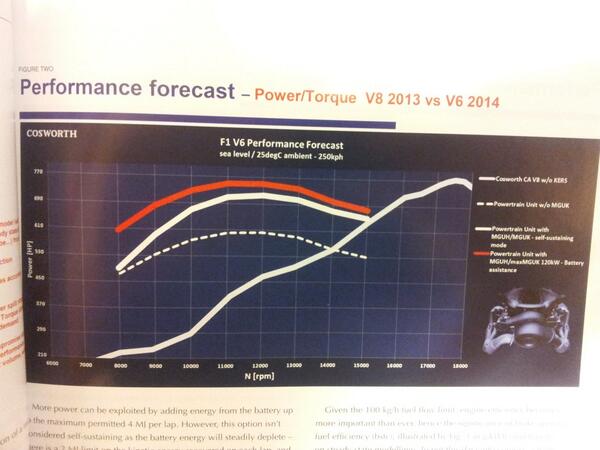hollus wrote:Thanks, damn...
What about Force India? If you can get me a single RPM Km/h pair under acceleration, I'll get it in the graphs.
Hülkenberg : 316 kph @ 11,186 RPM in 7th gear, from China P1
Pérez : 323 kph @ 11,443 RPM in 7th gear, from China P2
So yeh, I'm so glad to have found this and Blanchimont's threads, as I'm trying to simulate 2014 physics/torque/power values in Grand Prix 4. I made a basic gear set after watching a lap with Magnussen in Melbourne. But I actually didn't notice the disparity between each car.
I got torque values from the 1987 Honda V6, which I copied into the game and then I set my gearing accordingly. My power peak is right between 10,000 and 10,500 RPM, nearing 490 lb-ft. And 418 lb-ft at 12,500 RPM.
The game is limited to 7 gears, so I'm actually using 2nd to 8th gears. Here is a video sample :
[youtube]
http://www.youtube.com/watch?v=AMfo-q8wbe4[/youtube]
Remember, gearing is actually based on Magnussen's.
I'm not sure about the validity of my gear set and my torque curve, but I know I'm somewhere inbetween realistic and plausible. What do you guys think ? Oh and, of course, if this post doesn't belong to this thread please move it wherever it belongs to



